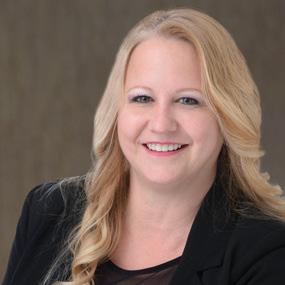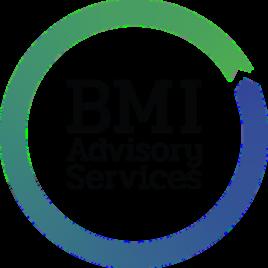NEW POLICIES & PROCEDURES

Impacts of the Anti-Money Laundering and Anti-Terrorist Financing Act p.20
CROSS-COUNTRY CHECK-IN
CMBA directors take the market pulse and discuss the association’s mandate p.10
DATA SECURITY AND PRIVACY BREACHES
How to build a culture of cyber vigilance p.34
FOREIGN BUYERS
Relaxed restrictions on non-Canadians buying residential property p.44
CMBA-ACHC.CA PM No. 41297283
SPRING 2023 $6.95 THE MAGAZINE FOR PROFESSIONAL MORTGAGE BROKERS +



















































































































NEW ANTI-MONEY LAUNDERING AND ANTI-TERRORIST FINANCING REQUIREMENTS FOR BROKERS, LENDERS AND ADMINISTRATORS

How
BY RAY BASI
CROSS-COUNTRY CHECK-IN
CMBA’s national directors take the market pulse and discuss the association’s mandate BY CHRIS FREIMOND
AMPLIFYING CMBA’S VOICE
Introducing JP Boutros, newly appointed government relations advisor BY CHRIS FREIMOND
REQUIREMENTS OF A COMPLIANCE PROGRAM FOR A REPORTING ENTITY
Do it and show it’s been done BY RAY BASI
DATA SECURITY AND PRIVACY BREACHES: WHAT MORTGAGE BROKERS NEED TO KNOW
Brokerages advised to build a culture of cyber vigilance
SUBMITTED BY PROLINK-CANADA'S INSURANCE CONNECTION

HOME PRICES APPEAR TO BE STABILIZING BUT SUPPLY IS STILL A CHALLENGE
Professional appraisers use up-to-date and real-time market data to arrive at an opinion of value BY CHRIS FREIMOND

NEW REGISTERED SAVINGS PLAN TO HELP FIRSTTIME HOMEBUYERS
All you need to know about the Tax-Free First Home Savings Account BY MARK
R. SERVELLO
CANADA RELAXES RESTRICTIONS ON NONCANADIANS BUYING RESIDENTIAL PROPERTY
BY GREG UMBACH, JENNY ROSS, PATRICK GORDON AND RASHEED ABOUHASSAN
CMB MAGAZINE CMBA-ACHC.CA SPRING 2023 I 5 VOLUME 8 ISSUE 2 SPRING 2023 departments columns Editorial Advertisers’ Index Off the Clock: Sabeena Bubber channels her time and talents into causes that help those in need BY LISA GORDON Legal Ease: Damages flowing from failing to complete a purchase BY RAY BASI Industry Profile: Nicole George relishes the opportunity to help East Coasters find a place to call home BY LISA GORDON 8 46 28 30 40
24 34 36 42 44
10
20
do the changes impact the mortgage brokering sector?
18 30
features
RESIDENTIAL COMMERCIAL CONSTRUCTION DEVELOPMENT LAND



While other lenders rely on automated mortgage approvals, we do things differently. We listen. Because numbers don’t tell the whole story. People do. Talk to us about your client’s needs.


VOLUME 8 ISSUE 2 SPRING 2023
THE CANADIAN MORTGAGE BROKERS ASSOCIATION
DIRECTORS
Terry Kilakos (CMBA-Quebec)
Sadiq Boodoo (CMBA-Ontario)
Jim DeCoste (CMBA-Atlantic)
Sachin Varma (CMBA-BC)
EXECUTIVE DIRECTORS
Carla Giles
Petra Keller
CMBA - ATLANTIC
Mortgage Brokers
Association of Atlantic Canada
12 M - 7095 Chebucto Road, Halifax, NS B3L 0A1
CMBA - BC
Mortgage Brokers

Association of British Columbia
2025 Willingdon Ave, Suite 900, Burnaby, BC, V5C 0J3
CMBA - ONTARIO
Independent Mortgage Brokers Association of Ontario
7 - 40 Winges Road, Woodbridge, ON L4L 6B2
CMBA - QUEBEC
L'Association des courtiers hypothecaires du Québec
5855 Taschereau #202, Brossard, QC J4Z 1A5
CANADIAN MORTGAGE BROKER magazine is produced by the Canadian Mortgage Brokers Association (CMBA)
EDITOR
Carla Giles
STAFF WRITER
Ray Basi
MANAGING EDITOR
Kathleen Freimond
ART DIRECTOR
Scott Laing
BILLING AND SALES
Debra Hiller
CONTRIBUTORS
Rasheed Abouhassan
Ray Basi
Chris Freimond
Carla Giles
Lisa Gordon
Patrick Gordon
Jenny Ross
Mark R. Servello
Greg Umbach
IMAGES Adobe iStock
CANADIAN MORTGAGE BROKER © All rights reserved. The views expressed in CANADIAN MORTGAGE BROKER are those of the respective contributors and are not necessarily those of the publisher or staff.
PUBLICATIONS MAIL AGREEMENT 41297283
Please return undeliverable Canadian addresses to 2025 Willingdon Ave, Suite 900, Burnaby, BC V5C 0J3
Printed in Canada by Hemlock Printers Ltd.
6 I SPRING 2023 CMBA-ACHC.CA CMB MAGAZINE
FIRST MORTGAGES, PURCHASES & REFINANCES | RESIDENTIAL & COMMERCIAL 24-HOUR TURNAROUNDS | NO MINIMUM BEACON SCORE | FLEXIBLE FINANCING SOLUTIONS* *Considers income, affordability, LTV, property type and more.
Learn more at www.icmbs.ca
Some call it alternative lending. To us, it’s people-based lending.



















30 Years of Experience You Trust Contact Your BDM Today Pratheesan Rathnapala Ontario Business Development Manager 416-629-2219 pratheesan@vwrcapital.com Paula Hutton Prairies Business Development Manager (AB, SK, MB) 780-370-7430 paula@vwrcapital.com Jennifer Peters British Columbia Business Development Manager 604-803-7430 jennifer@vwrcapital.com Earn More Low • Basic • Lender Fee Structure 2nd Mortgage 1 year Closed Fee starting at only $500 1st Mortgage 1 year Closed Fee starting at only $750 • No Income Qualification • No Minimum Beacon Score • 7 75% LTV 1st and 2nd Mortgages • Purchase and Refinance • Residential Financing • Set your OWN broker fee Visit us at vwrcapital.com Submit applications through Filogix, Velocity, Finmo & Lendesk
Housing completions can’t meet supercharged demand

BUDGET DID NOT DO ENOUGH TO ADDRESS MARKET DISTORTIONS
BY CARLA GILES, CHIEF EXECUTIVE OFFICER, CMBA-BC AND MBIBC; CO-EXECUTIVE DIRECTOR CMBA
Home sales in Canada have been rising for two consecutive months, although at a slow pace. Home buyers are adjusting to the current reality of higher interest rates, limited housing supply and home price corrections across the country.
The housing market was one of the sectors most impacted by the Bank of Canada’s aggressive campaign to slow down economic growth and bring the consumer price index (CPI) down. This campaign resulted in a 425 basis points increase to the policy interest rate in less than a year. Despite much uncertainty in the market, these measures were followed by a drop in inflation from a high of 8.1 per cent in June 2022 to 5.2 per cent year over year in February 2023.
The Bank of Canada’s second consecutive hold since March 2022 was a sigh of relief for the housing market, building some confidence in the sector. The Canadian Real Estate Association (CREA) released its March Housing Market forecast indicating that national home sales were up on a month-over-month basis in March 2023 by 1.4 per cent. This is a slight increase, but it comes after three quarters without any significant declines. Overall, CREA seems
optimistic that sales activity will pick up in 2024, resuming a long-term trend as indicated by the figure below.
Supply issues are still a concern. CREA revealed that new listings on the market dropped a further 5.8 per cent in March compared to the previous month. Not surprisingly, the sales to new listings ratio increased to 63.5, higher than the long-term average ratio of 55.1.
March also saw the MLS® Home Price Index up by 0.2 per cent on a month-overmonth basis and, according to CREA, “this trend of prices stabilizing from February 2023 to March 2023 was very broad-based. With few exceptions, prices are no longer falling across most of the country.”
The Bank’s quantitative tightening campaign produced undesired impacts to housing affordability as the costs of owner-
8 I SPRING 2023 CMBA-ACHC.CA CMB MAGAZINE ISTOCK.COM
editorial Source: CREA Housing Market Forecast: https://www.crea.ca/housing-market-stats/canadian-housing-market-stats/quarterly-forecasts/ SALES ACTIVITY 700,000 650,000 600,000 550,000 500,000 450,000 400,000 350,000 300,000 2000 2006 2012 2018 2001 2007 2013 2019 2002 2008 2014 2020 2003 2009 2015 2021 2004 2010 2016 2022 2005 2011 2017 2023F 2024F Historical Forecast 10-year average
ship have increased. Many Canadians will continue to be priced out of the market, further accentuating income disparities across its population.
The 2023 federal budget released in March introduced targeted supports to address inflationary impacts to low- and modestincome Canadians, but these effects will be temporary. The federal budget focused on Canada’s fiscal strength and competitiveness, mostly through supporting a transition to a clean economy through tax breaks aimed at driving up green investment.
By leaving housing affordability off the budget, the federal government appears to believe it has done what it can to steer the housing market onto a more affordable path through its 2022 budget measures.
These efforts included boosting housing supply, curbing speculation and supporting first-time home buyers. One such measure led to the introduction of the First Home Savings Account (FHSA), a new registered plan to help first-time home buyers save towards their first home. The tax-free advantage is available for deposits of up to $8,000 per calendar year with a $40,000 lifetime limit (see p.42).
Analysts tend to agree that these measures won’t be effective for some time and won’t be enough to address market distortions and labour shortages that hinder housing supply.
Recent statistics released by CREA show that new listings are at 20-year lows. Housing

MARCH MARKET SNAPSHOT
supply shortages are nothing new as econo mists and housing market analysts have been vocal about the challenges faced by a combi nation of market factors, including a lack of skilled trades and increased borrowing costs, which are partly due to market factors con tributing to delays in construction projects.
The ever-growing immigration targets the federal government sets are bringing more housing demand to key urban centres. At this pace, immigration will bring added strain on the housing market and further contribute to a deterioration of housing affordability. Ac cording to RBC, “the recent track record for construction has been underwhelming. While home building has picked up in Canada over the past three years – housing completions rose from less than 190,000 units in 2019 to roughly 220,000 units in 2021 and 2022 – it was nowhere near enough to meet supercharged demand.”
How to solve the housing supply crisis is a complex matter. It is best addressed through a systemic approach where multiple stakeholders are brought together to uncover the issues contributing to housing supply shortages. While some solutions can be planned and executed on a broader scale, some will depend on local and regional realities and may require differentiated solutions to address unique situations. For these reasons, a holistic approach that includes multiple stakeholders is necessary.
Stress Test
Your clients need you now, more than ever as the banks are tightening up!

We offer 24 Hour turnaround on commitments – allowing you to present solutions for your clients sooner rather than later.
Source: RBC Thought Leadershipe: https://thoughtleadership.rbc.com/green-shoots-in-canadas-housing-market/
CMB MAGAZINE CMBA-ACHC.CA SPRING 2023 I 9
Canada 1.4 -34.4 -5.8 -27.4 0.2 -15.5 0.63 Toronto 1.6 -37.0 -7.3 -44.2 1.6 -16.2 0.64 Montreal -1.2 -27.8 -0.1 -8.2 -0.3 -6.4 0.58 Vancouver 3.0 -42.5 -6.9 -34.9 0.0 -9.5 0.56 Calgary -2.3 -42.0 -12.7 -39.5 -0.2 1.1 0.85 Edmonton -1.6 -44.1 -12.8 -21.3 -0.2 -7.7 0.60 Ottawa -1.6 -40.5 -2.1 -20.7 -0.7 -14.5 0.61 Home resales New listings MLS Home Price Sales-to(% change) (% change) Index (% change) new listings M/M Y/Y M/M Y/Y M/M Y/Y ratio BRITISH COLUMBIA Greg Kakuno Business Development Manager 604-430-1498 gkakuno@capitaldirect.ca ALBERTA Donna Hunter Business Development Manager 403-874-6348 dhunter@capitaldirect.ca ONTARIO Cheryl Smith Business Development Manager 905-299-1706 csmith@capitaldirect.ca Equity
Purchase
ETO
Special
Lending up to 1,500,000 1st and 2nd Mortgages
/ Refinance,
up to 75% LTV
offers for 600+ Beacon Scores in large urban centres
Still waiting for Bank Approvals?
killing
your deals?
CROSS-COUNTRY

10 I SPRING 2023 CMBA-ACHC.CA CMB MAGAZINE IN check
directors’ outlook
BY CHRIS FREIMOND
It’s been a tough 12 months for the real estate market. Mortgage rates have risen sharply, inventory in many regions dried up as prices stagnated and sellers took their homes off the market, frustrating buyers and leaving many mortgage brokers wondering how they should respond to changing conditions.
We spoke to CMBA’s four national directors to discuss their mandate and find out what the markets are doing in their regions and asked them to share their views on what mortgage brokers can expect in the coming 12 months. They also provided a few pointers to how brokers can meet the challenges of a changing market and continue providing valuable advice to clients in these difficult times.
SADIQ BOODOO
President and Chair: CMBA; President and Chair: CMBA-Ontario; principal broker and CEO, Approved Financial Services, Whitby, Ontario


CMBA BOARD PRIORITIES
My mandate as CMBA president is to support CMBA members across the country by providing value through education and professional development as well as giving them a voice with industry stakeholders, regulators and government agencies through our government relations and advocacy initiatives. I look forward to continuing to work with our board at CMBA National to promote the best interests of the
CMB MAGAZINE CMBA-ACHC.CA SPRING 2023 I 11 ADOBESTOCK
CMBA’s national directors take the market pulse and discuss the association’s mandate
mortgage brokering industry, mortgage brokers and the clients they work with.
CURRENT MARKET IN ONTARIO AND OUTLOOK FOR THE NEXT 12 MONTHS
The market is, as expected, in constant fluctuation. Regionally there are still bidding wars, whereas in other areas properties are sitting on the market for months. The price points are the major factor impacting this fluctuation.
Over the next 12 months, I would expect that buyers who are sitting on the sidelines will realize that downturns in the market have flat lined and they will come back into the market to purchase. That increased demand will stimulate sellers to re-enter as well. Depending on the speed and degree to which this happens, we could easily see prices start to rise.
MORTGAGE BROKERS’ CONCERNS
Mortgage brokers’ concerns are currently the difficulty they face in helping clients exit shortterm or “bandage” financing that they entered into last year in order to close and, secondly, lower appraisal values leaving clients with few options or only higher interest rate options to consolidate debts to maintain affordability. Both of these concerns would reasonably continue over the next 12 months.
DEALING WITH CHANGING MARKET CONDITIONS
My advice would be the same: focus on giving your clients the best advice and don’t panic. The tougher things get, the more valuable you become.
TERRY KILAKOS
Vice president: CMBA; Director: CMBA-Quebec; founder, North East Real Estate and Mortgage Agency, Saint-Laurent, Quebec


CMBA BOARD PRIORITIES
The Canadian Mortgage Brokers Association truly is the voice of mortgage brokers – it is an association created by mortgage brokers for mortgage brokers. We are mandated to ensure that the mortgage broker’s voice is heard loud and clear and is not diluted by the voice of banks. Banks are not involved in any way, shape or form.
CURRENT MARKET IN QUEBEC AND OUTLOOK FOR THE NEXT 12 MONTHS
We’ve been fairly fortunate and relatively unscathed by interest rate increases because the prices in Quebec in general were not overly inflated to begin with. So we found ourselves in a situation where our prices remained stable while prices in some other parts of the country were correcting downwards.
Up until about the third quarter of last year, there was a serious shortage of inventory. It went up slightly in the fourth quarter, but there was also a slowdown in the number of people buying property, so the one balanced out the other.
It’s interesting to note that sellers in general didn't reduce asking prices.
We’ve started off pretty strong this year. There was a continued increase in
inventory, but that’s come down a bit as interest rates stabilized and buyers came back into the market. We are also seeing a change in buyer behaviour. In many cases, instead of opting for the typical five-year fixed or a five-year variable interest rate that was previously so popular, many buyers are choosing three-year rates or shorter terms because it gives them flexibility, if interest rates drop, to switch without high penalties.
MORTGAGE BROKERS’ CONCERNS
Affordability of mortgages. In general, for people in Quebec with the incomes that we have here, there’s a very sweet spot when it comes to properties they can afford. The stress test has a huge impact on the market.
The other worrying issue is new restrictions being proposed by the Office of the Superintendent of Financial Institutions (OFSI). The CMBA Board is working diligently to lobby the government not to put those changes into effect.
DEALING WITH CHANGING MARKET CONDITIONS
Good planning is in order. Mortgage brokers need to stay proactive and reach out to their clients, particularly clients they feel need their advice on issues such as restructuring debt and improving monthly cash flow. A good mortgage broker is going to do those calculations with their clients and help them understand how much they could actually be saving if they were to rejig that mortgage.
There may also be clients who secured variable rate mortgages when rates were very low and now find themselves with interest rates pushing five and a half to six and a half per cent in some cases. Those clients need to be contacted as well to make sure that what they have is still working for them. If it’s not, it’s a good opportunity for the mortgage broker to help alleviate some of that monthly financial stress.
12 I WINTER 2023 CMBA-ACHC.CA CMBMAGAZINE
directors’ outlook
SACHIN VARMA
Treasurer: CMBA; Past President: CMBA-B.C.; founding partner of Highpoint Capital Solutions, Surrey, British Columbia



CMBA BOARD PRIORITIES
The national board’s mandate is to enhance the industry by promoting
education and professional development among our members and the industry. We aim to provide a platform for members to grow and improve their skills and become leaders in their field. The association also serves as an advocate for its members by giving them a voice in matters that affect the industry and profession.
We are implementing this through a number of different strategies and initiatives, including but not limited to training, publications and government relations.
CURRENT MARKET IN BRITISH COLUMBIA AND OUTLOOK FOR THE NEXT 12 MONTHS


Over the past few weeks, we have noticed an uptick in the real estate market and heard that some properties are again selling for over asking price and in multiple offer situations.
There is still a limited housing supply. The availability of homes for sale has been limited, particularly in urban areas.
Given the increase in mortgage rates over the past year, borrowers are qualifying for lower mortgage amounts. There are many adjustable rate and variable mortgage holders who have seen an increase in their payments, which, for some, has impacted their affordability.
Overall, I would say that the outlook for the next 12 months is cautiously optimistic. While the Bank of Canada paused interest rates recently given the steady decline in inflation and we have seen a slight decline in fixed interest rates, interest rates continue to have a significant impact. If interest rates start to rise again, it could lead to a decrease in demand for mortgages as borrowing becomes more expensive.
CMB MAGAZINE CMBA-ACHC.CA SPRING 2023 I 13 CONTEST CONTEST BMI ADVISORY SERVICES LTD. BMI ADVISORY SERVICES LTD. JAN 1 - DEC 31, 2023 JAN 1 - DEC 31, 2023 Fine Print: Applied insurance applicant is a referral that is converted by a life insurance agent to a submitted life, disability and/or critical illness insurance applicant. Referrals coming from our partners must be their own applicant/client – No pooling There will be no pro-rating of qualification requirements for brokers who join BMI Advisory Services during the contest period. Recipients of incentive must be in good standing with BMI Advisory Services at Dec 31, 2023 to receive the incentive. Incentives will be distributed in January 2024. $2K $2K Cash Cash $1K $1K Cash Cash $4K $4K Cash Cash 5 Draws of 5 Draws of $500 Cash $500 Cash 50 applied insurance applicants or $110K* annualized premium 27 applied insurance applicants or $60K* annualized premium 16 applied insurance applicants or $36K* annualized premium Submit a minimum of 5 applied insurance applicants and starting with the 6th, you will receive a ballot for each applied ins. applicant. Build. Manage. Innovate. * Premium does not include ADO/EDO www.bmiadvisory.ca
The performance of the economy and employment rates can affect the demand for mortgages. If the economy continues to recover and employment rates remain high, it could lead to increased demand for mortgages as more people feel confident in their ability to repay loans.
In B.C., we will notice the impact of the foreign buyers’ ban.
The performance of the housing market can impact the mortgage market. If housing prices continue to rise, it could lead to increased demand for mortgages as people look to buy homes before prices rise even further.
MORTGAGE BROKERS’ CONCERNS
Brokers are concerned about uncertainty with the current interest rate environment and the sensitivity of the real estate market to interest rates. There is also concern about how the market is likely to develop over the next 12 months and whether it will be a year of pause or a robust 12 months.
DEALING WITH CHANGING MARKET CONDITIONS
Mortgage brokers who are finding the current market slower have a great opportunity to refine their business plan. My advice is to revisit your book of clients and implement strategies allowing you to be better connected with existing clients. Reconnect with your centres of influence (COIs) and referral sources. Take this time to build deeper relationships.
Also, focus on learning. While this should always be top of mind, find opportunities to continue to grow in the field and further develop your knowledge and skills, and implement marketing strategies.
Over the next 12 months as market activity increases, be consistent with your efforts and marketing strategies. Stay connected with existing clients, COIs and referral sources, and your lender partners, and continue to focus on learning and development.
JIM DECOSTE
Secretary: CMBA; President: CMBA-Atlantic; owner, Dominion Lending Centres Maritime Mortgage Group, New Glasgow, Nova Scotia

CMBA BOARD PRIORITIES
The Board is looking at how best to serve the provincial associations and CMBA members as a whole on the national level. We’ve also been working towards developing a strategy for the national association regarding government regulations and policy changes, both on a provincial and federal level. Part of that involved recruiting a government relations advisor, J.P. Boutros (see p.18), to provide support with provincial and federal regulation changes. Education is always an important part of our mandate, so we aim to provide our members with education and advice on best practices as well as advocating on their behalf.
CURRENT MARKET IN ATLANTIC CANADA AND OUTLOOK FOR THE NEXT 12 MONTHS

There have been many changes in the real estate market and the mortgage broker sector over the past 18 months. We’ve gone through both highs and lows. The market overall has dropped in late 2022 and the first quarter of 2023 compared to record-breaking years in 2020 and 2021. However, Atlantic Canada seems to have weathered the storm a little bit better than some of the other provinces due to
the regional market being relatively under-priced, and we are still doing pretty well even though prices have levelled off and sales are down, but not to the same extent as other parts of the country.
Inventory is down in all areas compared to 2021 and 2022. We are hoping for an uptick this spring, but we know there is a shortage of housing stock in Atlantic Canada, and that’s not going to change anytime soon.
The challenge we face is an influx of people into Atlantic Canada because of the property values and affordability issues in some of the other major markets. We are seeing people moving in from Toronto or moving back home from out West. New immigrants to Canada are also coming into Nova Scotia and other parts of Atlantic Canada, and the housing market isn’t able to keep up with the demand even though we are seeing high levels of new construction.
I don’t see a huge change in the next 12 months compared to what’s happened over the past six to 12 months. I think we’re going to be in similar markets. Our numbers are going to be down compared to our highs of 2021 and early 2022, and it’s all down to a supply chain issue. Construction can’t keep up with the demand.
The market will also be impacted by what happens to interest rates. Our fixed rate mortgages are at a 10+-year high. But regardless of what happens to interest rates, we will probably not see a change in sales volumes because there is simply not enough supply to meet market demand. People want to buy homes, but homes have to be available for purchase.
MORTGAGE BROKERS’ CONCERNS
Mortgage brokers’ concerns go hand in hand with the concerns of their clients. When people aren’t buying homes, mortgage brokers need to review their strategies and reconsider how they are assisting their clients.
14 I SPRING 2023 CMBA-ACHC.CA CMB MAGAZINE
directors’ outlook
Probably the biggest concerns for both mortgage brokers and their clients right now are interest rates and lack of housing supply. There is also some concern about possible policy changes the government may implement to help cool inflation.

I doubt we will see a significant dip in property values over the next 12 months because demand is still high. We’re also not going to see huge price increases, although they may rise slightly here in Atlantic Canada.
Mortgage brokers are shifting their mindset from the highs of 2021 and 2022 and are now working with their clients on issues such as debt restructuring. Some clients who have mortgages are looking at ways to reduce their overall monthly costs. Until rates come down, I think this is where many brokers will focus their attention.
DEALING WITH CHANGING MARKET CONDITIONS
We’ve just come off several years of super low interest rates and high demand for property. Everything was gravy, the phone was constantly ringing and there was little time to reach out to our past clients because brokers were so busy. However, there will always be highs and lows in our industry. Things will change, so don’t hit the panic button when that happens.
Sometimes change is good; it opens up other opportunities. In a market where purchases are slowing down, you have the opportunity to reach out to some of your best clients, to work your book of business and look for opportunities to assist clients who may, for example, need help restructuring their debts and reassuring them that inflation will be brought back down to the Bank of Canada’s targets, possibly within the next 12 to 18 months.
Our industry will remain strong. Clients will continue to turn to us for advice, particularly at a time of high interest rates. Those facing mortgage renewals will likely experience sticker shock when they receive their renewal offer from their current bank, so they are likely to shop around for a better rate. That’s where we come in. Reach out to your previous clients and make sure they know you are there to work for them and to find solutions.
THE CANADIAN MORTGAGE BROKERS ASSOCIATION (CMBA) is a national umbrella organization formed in 2015 to enhance already strong regional representation but also promote higher standards and awareness across the country. CMBA’s purpose is to help each of its provincial affiliates to be as strong as possible in serving their local members. CMBA provincial affiliates include: CMBA-BC, CMBA-Ontario, CMBA-Atlantic and CMBA-Quebec.

THE MANDATE of CMBA is to enhance the mortgage brokering industry by promoting education and professional development among our members. We aim to provide a platform for members to grow and improve their skills and become
leaders in their field. The association also serves as an advocate at the provincial and national level for its members by giving them a voice in matters that affect the industry and profession. By doing so, the association is dedicated to advancing the industry and improving the lives and careers of its members.
CMBA promotes a co-operative agenda that empowers each provincial affiliate by supporting activities related to:
n Government relations
n Education
n MB/CH branding
n Consumer awareness
n Industry growth
n Economies of scale
n Member professionalism and ethics
CMB MAGAZINE CMBA-ACHC.CA SPRING 2023 I 15

You envision. We enable.

Ensuring our borrowers see a clear path to success is our unique specialty. We’re one of North America’s leading non-bank commercial mortgage lenders with over $3 billion under administration. We specialize in bespoke lending solutions for commercial real estate financing in amounts from $10M to $100M. We’ll share your vision, and your entrepreneurial mindset, to provide time-sensitive lending and financing solutions. Let’s talk. 800 494 0389 | romspen.com



CMB MAGAZINE CMBA-ACHC.CA SPRING 2023 I 17 All your privates. All the time. Lend Across Ontario 1st & 2nd Mortgages Urban, Small center, Rural Construction, Renovation, Bridge Financing Up to 40 Year Amortization westboromic SPELL CHECK DATE: AD NUMBER: AD / JOB TITLE: PUBLICATION / RUN DATE: LIVE: COLOUR: CLIENT: CREATIVE TEAM: TRIM: BLEED: BENSIMO N PARTNERS TEL.416 597 9700 HELLO@BENSIMON.CA MARCH 8, 2023_2:15PM ROM CMBA 23 02 ENVISION CANADIAN MORTGAGE BROKER / SPRING 2023 8.375” x 10.75” CMYK ROMPSEN BENSIMON/PARKER NA NA ✓
License # 10172 Investment Corporation
AMPLIFYING CMBA’S VOICE
Introducing JP Boutros, newly appointed government relations advisor
BY CHRIS FREIMOND
JPBoutros, Canadian Mortgage Brokers Association’s newly appointed government relations advisor, doesn’t hesitate when asked what value he will bring to CMBA members.
“I look forward to being a conduit between the messages the government and policy-makers want to bring and what mortgage brokers would like to inform the government about on behalf of their clients and themselves. CMBA president Sadiq Boodoo and the board’s goal is to elevate that conversation and ensure that mortgage brokers’ voices are better understood and heard in the wider media sphere and by the government. We want our input to become indispensable to them as a vital stakeholder.”
With 15 years in government relations (GR) under his belt, including four years leading GR for another industry association, Boutros is well placed to ensure CMBA’s voice is heard by the federal and provincial governments.
Boutros, who has a genuine passion for real estate and personal finance, is a strong believer in the value of home ownership and aims to help CMBA convince policy-makers to avoid making buying and owning a home unnecessarily difficult for Canadians.
One of his first priorities is getting decision-makers to understand the socio-economic impacts of Guideline B-20.
In January this year, the Office of the Superintendent of Financial Institutions (OSFI) launched a public consultation regarding changes to Guideline B-20 Residential Mortgage Underwriting Practices and Procedures that would further tighten mortgage underwriting rules and possibly related rules that apply to federally regulated lenders.
Specifically, OSFI is seeking feedback on three measures: (1) possible restrictions on mortgage size (loan-to-income (LTI)) and debt load (debt-to-income (DTI)); (2) debt service coverage restrictions, in relation to a borrower’s gross income and total debt; and (3) interest rate affordability stress tests, to gauge a borrower’s ability to afford higher debt payments in the event of financial shocks.
Boutros personally believes some of the measures exceed the mandate of the regulators whose primary role is to oversee federally regulated financial institutions and big banks rather than individual borrowers, mainly because of effects that lie outside the regulator’s area of expertise.

18 I SPRING 2023 CMBA-ACHC.CA CMB MAGAZINE government relations
ISTOCK.COM
“The issue is that a lot of the B-20 messaging talks about the type of homeowner they want, the type of borrower they want on the books at the big banks. I don’t think that’s their mandate and hope they don’t want that as a mandate,” he says. “Their stated mandate is to protect the big banks, deposit holders and shareholders; it’s not to regulate individual Canadians, yet their influence over housing policy is clearly evident.”
Boutros says it is essential for CMBA to be included in conversations with governments and that regulators do not rely on data that quickly becomes outdated.

“Regulators need first-hand, real-time, front-line information that comes from people, especially mortgage brokers. That’s the strong messaging CMBA will take to government; we need to put it out there,” he adds.
In advance of a federal election, Boutros says the board and he will consult members across its four provincial associations to get a better understanding of their government relations and regulatory concerns.
Regulators need first-hand, real-time, frontline information that comes from people, especially mortgage brokers. That’s the strong messaging CMBA will take to government; we need to put it out there.
“We don’t want to be too presumptuous. While B-20 is important, I think there are other local issues that we may be missing and that need our attention,” he says.
For example, says Boutros, on a broader scale, CMBA will also be looking at challenges such as housing supply and will be working with CMBA-BC, CMBA-Ontario, CMBAAtlantic, and CMBA-Quebec on how to accelerate growth through home ownership and construction. The association will also work with philosophically aligned organizations to ensure there are cohesive and coherent messages, with B-20 and fraud prevention high on the list.
“Our overall strategy is definitely to work with government and become an informative and reliable stakeholder so they aren’t listening disproportionately to big entities like the Canadian Bankers Association, with established ways of doing things, because there’s nothing normal anymore during a time of constant change,” he says.

CMB MAGAZINE CMBA-ACHC.CA SPRING 2023 I 19
“
NEW ANTI-MONEY LAUNDERING AND ANTI-TERRORIST FINANCING REQUIREMENTS FOR BROKERS, LENDERS AND ADMINISTRATORS
How do the changes impact the mortgage brokering sector?
BY RAY BASI, J.D., LL.B., DIRECTOR OF EDUCATION FOR CMBA-BC AND MBIBC
Mortgage brokers, lenders and administrators are about to become subject to the Proceeds of Crime (Money Laundering) and Terrorist Financing Act (the Act). This will trigger significant new compliance requirements. Why the change now? What is the change? What impact will the change have on mortgage brokers, lenders and administrators?
WHY THE CHANGE?
Money laundering is the process by which proceeds from criminal or illegitimate sources are concealed or disguised (that is ‘cleaned’ or ‘laundered’) to make them appear as if they are from legitimate sources. Terrorist financing is the collecting and providing of funds to fund terrorist activity. It is, of course, in society’s interest to make criminal and illegitimate activity less appealing by making it less profitable. As well, it is in society’s interest to make it financially less feasible for terrorists to carry out their activities in Canada or in other parts of the world.
The federal government in Canada Gazette, Part 1, Volume 157, Number 7: Regulations Amending Certain Regulations Made Under the Proceeds of Crime (Money Laundering) and Terrorist Financing Act expressed its views that:

n Real estate is increasingly being used to launder illegitimate funds and to hold the wealth of criminal and terrorist groups.
n There is a growth in the volume and value of mortgages issued by businesses that are not currently subject to the Act.
n These mortgage lenders, unregulated under the Act, can be highly vulnerable to exploitation for money laundering/terrorist financing (such as by engaging in ordinary matters of helping clients borrow funds, or sending and receiving money).
20 I SPRING 2023 CMBA-ACHC.CA CMB MAGAZINE compliance requirements
ADOBESTOCK

CMBMAGAZINE CMBA-ACHC.CA SPRING 2023 I 21
compliance requirements
The federal government is of the view that by making this sector subject to the Act and its related regulations, this sector will be less vulnerable to being misused in this way. It feels this reduced vulnerability will lead to less crime and terrorist activity in society.
THE CHANGE
The Act targets deterring, detecting, investigating and prosecuting money laundering and terrorist financing. Importantly, it requires “reporting entities” (specified businesses and occupations) to develop and implement compliance programs, including processes to identify clients, monitor business relations, keep records, and report specified types of financial transactions. Significantly, the Act establishes the Financial Transactions and Reports Analysis Centre of Canada (FINTRAC) as Canada’s primary anti-money laundering and anti-terrorist financing agency.
FINTRAC is both a regulator and financial intelligence unit. It enforces the requirements imposed on reporting entities and produces data and records to assist national and international agencies to combat money laundering and terrorist financing.
Mortgage brokers, lenders and administrators have to date not been included as reporting entities and so have not been subject to the Act or FINTRAC’s requirements. Others in the financing sector (such as banks, trust companies, loan companies and federal credit unions) have been included as reporting entities for quite some time.
The federal government believes that not including mortgage brokers, lenders and administrators as reporting entities for purposes of the Act makes them more vulnerable to being exploited for money laundering and terrorist financing purposes.

The vulnerability for this group relates particularly to both receiving funds that are proceeds of crime (for example, down payments and
repayments of loans) and lending potential proceeds of crime to clients. The federal government believes including entities of all sizes that are involved in the mortgage lending process (mortgage originators, lenders/ underwriters and administrators) as reporting entities would reduce the vulnerabilities of these entities being misused for money laundering or terrorist financing activities. Accordingly, the published draft regulations would include mortgage brokers, mortgage lenders and mortgage administrators as “reporting entities.” The proposed definitions are sufficiently broad that together they would take in most persons engaging in the mortgage arranging and administering process. Specifically, they provide:
n “mortgage broker”: a person or entity that is authorized under provincial legislation to act as an intermediary between a mortgage lender and a borrower;
n “mortgage lender”: a person or entity, other than a financial entity, that is engaged in providing loans secured by mortgages on real property or hypothecs on immovables; (Note: Financial entities are covered otherwise than by this definition.)
n “mortgage administrator”: a person or entity, other than a financial entity, that is engaged in the business of servicing mortgage agreements on real property or hypothec agreements on immovables on behalf of a lender.
THE IMPACT OF THE CHANGE
If you operate within any of these definitions, you are a reporting entity and will be required to comply with the Act, the regulations and FINTRAC requirements.
So what are the requirements?
Unless the regulations are amended before they are brought into force, you will need to:
n Apply customer due diligence measures;
n Keep appropriate records;
n Report certain types of transactions;
n Have a compliance officer;
n Have a compliance program in place;
n Have a training program in place;
n Have a training plan in place; and
n Review your compliance program at least every two years.
THE TAKEAWAY
Suffice to say that by virtue of being included as a reporting entity for purposes of the Act, the compliance requirements imposed on mortgage brokers, lenders and administrators will increase significantly. For a more detailed discussion of the contents of the compliance program, as it concerns money laundering and terrorist financing, please read the companion article in this magazine (p.24).
This article is not intended as legal advice. You are advised to obtain legal advice in specific instances.
22 I SPRING 2023 CMBA-ACHC.CA CMB MAGAZINE
The federal government believes that not including mortgage brokers, lenders and administrators as reporting entities for purposes of the Act makes them more vulnerable to being exploited for money laundering and terrorist financing purposes.




CMB MAGAZINE CMBA-ACHC.CA SPRING 2023 I 23 LAWRENSONWALKER.COM VANCOUVER · VICTORIA · OKANAGAN PEACE REGION · CALGARY · EDMONTON Guiding You Through The Storm

24 I SPRING 2023 CMBA-ACHC.CA CMBMAGAZINE
REQUIREMENTS OF A COMPLIANCE PROGRAM FOR A REPORTING ENTITY
Do it and show it’s been done
BY RAY BASI, J.D., LL.B., DIRECTOR OF EDUCATION FOR CMBA-BC AND MBIBC
Once mortgage brokers, lenders and administrators are included as “reporting entities,” they will need to comply with the Proceeds of Crime (Money Laundering) and Terrorist Financing Act and associated Regulations (for convenience, together referred to as the Act). As such, they will be required to have a compliance program in place that addresses the non-exhaustive topics covered in this article.
The government intends to allow a six-month transition period to allow the new reporting entities to come into compliance, but before then you might want to be familiar with the framework and consider whether you can accommodate the new obligations within your existing resources. Simply put, you might need to add staff to meet the new compliance requirements.

COMPLIANCE OFFICER
A reporting entity must have a compliance officer. The compliance officer of a small business is generally one of its senior managers, owners or operators. For a larger business, it is someone from a senior level who has direct access to senior management and the board of directors. For a sole proprietorship, it is the sole proprietor or someone they appoint.
The compliance officer is responsible for implementing all elements of the compliance program required under the Act and so needs to:
n Have the necessary authority and access to resources in order to implement an effective compliance program and make any desired changes;
n Have knowledge of the business’s functions and structure;
n Have knowledge of the business sector’s money laundering/terrorist financing risks and vulnerabilities as well as money laundering/terrorist financing trends and typologies; and
n Understand the business sector’s requirements under the Act.
WRITTEN COMPLIANCE POLICIES AND PROCEDURES
There must be written compliance policies and procedures that are accessible to those persons who need to follow them. The policies and procedures must be kept up to date and approved by a senior officer of the reporting entity. The level of detail in your compliance policies and procedures will depend on your business size, structure and complexity, and degree of exposure to money laundering/terrorist financing risks.
CMB MAGAZINE CMBA-ACHC.CA SPRING 2023 I 25 compliance program
ISTOCK.COM
compliance requirements
The compliance policies and procedures should cover, at minimum, requirements concerning the following areas (as applicable):
n Compliance program (such as having an appointed compliance officer, conducting a risk assessment, having an ongoing compliance training program and plan, and conducting a two-year effectiveness review and plan);
n Know your client (such as verifying the identity of clients and the beneficial ownership of property);
n Business relationships (such as keeping a record of the purpose and intended nature of the business relationships with a client and describing your business dealings with them);
n Record keeping (such as documenting how other requirements have been met);
n Reporting (such as regarding suspicious transactions);
n Travel rule (this concerns including or obtaining certain information in relation to an electronic funds transfer or a virtual currency transfer); and
n Ministerial directives or restrictions (the federal Minister of Finance may issue directives or restrictions in dealing with transactions concerning a foreign jurisdiction).
Your compliance policies and procedures should also include the processes and controls put into place to meet your applicable requirements, including the following:
n When an obligation is triggered;
n The information that must be reported, recorded, or considered;
n The procedures created to ensure a requirement is fulfilled; and
n The timelines associated with your requirements and methods of reporting.
RISK ASSESSMENT
The compliance program must include policies and procedures that assess money laundering/terrorist financing risks in the course of the business’s activities.When assessing and
If, at any time, you consider the risk of a money laundering or terrorist financing offence to be high, you must take enhanced measures. Enhanced measures are the additional written controls and processes that you have put in place to be applied to manage and reduce the risks associated with your high-risk clients and business areas.
documenting these risks, you must consider the following:
n Your clients and business relationships, including their activity patterns and geographic locations;
n The products, services and delivery channels you offer;
n The geographic location(s) where you conduct your activities;
n The risks resulting from ‘new developments’ or ‘new technologies’ you intend to carry out or introduce that may have an impact on your clients, business relationships, products, services or delivery channels, or the geographic location of your activities; and
n Any other relevant factors affecting your business (for example, employee turnover, industry rules and regulations).
If, at any time, you consider the risk of a money laundering or terrorist financing offence to be high, you must take enhanced measures. Enhanced measures are the additional written controls and processes that you have put in place to be applied to manage and reduce the risks associated with your high-risk clients and business areas.
Enhanced measures to mitigate risk can include:
n Obtaining additional information on a client (for example, information from public databases and the internet);
n Obtaining information on the client’s source of funds or source of wealth;
n Obtaining information on the reasons for attempted or conducted transactions; or
n Any other measures you deem appropriate.
TRAINING PROGRAM
If you have employees, agents or other persons authorized to act on your behalf, you must develop and maintain a written, ongoing compliance training program. Your training program should explain what your employees, agents or other persons authorized to
act on your behalf need to know and understand, including:
n Your requirements under the Act;
n Background information on money laundering and terrorist financing (such as the definitions of the terms and how to detect such activity);
n How your business or profession could be vulnerable (provide indicators and examples);
n The compliance policies and procedures you have developed to help meet your requirements under the Act for preventing and detecting money laundering and terrorist financing including your reporting, record keeping and know-your-client requirements; and
n Their roles and responsibilities in detecting and deterring money laundering and terrorist financing activities, and when dealing with potentially suspicious activities or transactions.
You must institute and document a plan for your ongoing compliance training program and for delivering the training, including how it will be implemented and delivered. This includes documenting the steps you will take to ensure your employees, agents or other persons authorized to act on your behalf receive an appropriate level of training relevant to their duties and position, on an ongoing basis.
TWO-YEAR COMPLIANCE REVIEW
You must, at least every two years, conduct an effectiveness review to test the effectiveness of the elements of your compliance program (policies and procedures, risk assessment, and ongoing training program and plan).
You must start your effectiveness review no later than 24 months from the start of your previous review. You must also ensure that you have completed your previous review before you start the next review.
The purpose of an effectiveness review is to determine whether your
26 I SPRING 2023 CMBA-ACHC.CA CMB MAGAZINE
compliance program has gaps or weaknesses that may prevent your business from effectively detecting and preventing money laundering and terrorist financing.
Your plan should not only describe the scope of the review, but it should include the rationale that supports the areas of focus, the time period that will be reviewed, the anticipated evaluation methods and sample sizes. The evaluation methods can include, but are not limited to, interviewing staff, sampling records and reviewing documentation. The review must be carried out and the results documented by an internal or external auditor, or by yourself if you do not have an auditor. The auditor should be someone who is knowledgeable of your requirements under the Act.
You must report, in writing, the following to a senior officer no later
than 30 days after the completion of the effectiveness review:
n The findings of the review (for example, deficiencies, recommendations and action plans);
n Any updates made to the policies and procedures during the reporting period (the period covered by the two-year review) that were not made as a result of the review itself; and

n The status of the implementation of the updates made to your policies and procedures.
POSSIBLE CONSEQUENCES FOR NON-COMPLIANCE
Administrative monetary penalties are being contemplated regarding non-compliance. The range of the penalty will depend on the harm done by the violation and the reporting entity’s history of compliance. The penalty for a minor violation would range from $1 to $1,000 per violation,
a serious violation would be from $1 to $100,000 per violation, and a very serious violation would be from $1 to $100,000 per violation for an individual and from $1 to $500,000 per violation for an entity.
TAKEAWAYS
If mortgage brokers, lenders and administrators are included as reporting entities for purposes of the Act, and it is almost certain they will be, compliance efforts and costs are bound to increase. While there is no need to think the weight of compliance will be unbearable, it will certainly be lighter for mortgage brokers who anticipate the future, familiarize themselves with the likely changes, and plan accordingly.
This article is not intended as legal advice. You are advised to obtain legal advice in specific instances.

CMB MAGAZINE CMBA-ACHC.CA SPRING 2023 I 27
INTRODUCING Secured first position up to 75% LTV, variable rate Residential, Ontario Only Purchase, Refinance, Rentals and Condos No Minimum beacon No Income No TDS/GDS ROYALFLEX 1st LINE OF CREDIT Contact one of our BDMs for details: www.royalcanadianmortgage.com/contact-us
While there is no need to think the weight of compliance will be unbearable, it will certainly be lighter for mortgage
FINDING
BY LISA GORDON
Sabeena Bubber has celebrated many successes in her 30-year mortgage industry career. From her early days underwriting for an alternative lender to a position as a bank mortgage specialist, and finally to her current role as a mortgage broker with British Columbia-based Xeva Mortgage, she has no regrets about following the intuition that led her to mortgage brokering.

“I can’t see myself ever doing anything but mortgage brokering,” she said during a recent interview. “I love what I do.”
It was a mortgage broker who told her, when she was underwriting, that she was sitting on the wrong side of the desk. Intrigued, she explored her options and successfully completed the broker’s course while working at a bank.
But, like many other mortgage professionals, Bubber was frustrated at being restricted to the bank’s mortgage products.
“They wanted me to bring all my referral sources from outside and yet, once I completed a mortgage, I could no longer provide advice to that client,” she said. “I wanted to be able to provide long-term advice to my clients. I felt I could provide them with better solutions and more products at a brokerage.”
Today, Bubber handles mostly residential mortgages and specializes in helping clients who are self-employed or those who are going through a divorce.
“When I was going through my own divorce, I gained a whole new perspective,” she recalled. “I started a group called the Divorce Circle in 2019, where we have professionals from different areas come in to educate women about their rights, the processes available to them, and how to get through it. From there, I developed a website, www.divorce.mortgage
28 I SPRING 2023 CMBA-ACHC.CA CMB MAGAZINE
brokers off-the-clock JOY
B.C. mortgage broker Sabeena Bubber channels her time and talents into causes that help those in need
JOY
“This website takes the valuable information from all the professionals I’ve worked with and puts it in one convenient place, with videos and information for people going through divorce.”
Two years before the Divorce Circle was founded, a personal tragedy in her close friend’s life prompted Bubber to start a Go Fund Me campaign to provide financial assistance to her. It was the beginning of what she now calls her “passion project” – Brokers Who Care (www.brokerswhocare.ca).

“About $7,000 of the $30,000 we raised for my friend came from mortgage brokers across Canada, from my network. It gave me an idea,” said Bubber. “What if the broker community could come together to help other families in need?”
Fast forward to 2023, and Brokers Who Care now includes 217 members from across the country.
“Brokers contribute $100 per quarter, or $400 per year, and in addition to the benefits of helping others, they are given marketing materials to promote their involvement to their communities,” explained Bubber. “Then, every three months, the membership has a nomination period. We vote virtually on who we’ll donate to: kids with cancer, people with long-term ailments, parents who are struggling. We help them out. Sometimes it’s actual mortgage brokers or people in the industry, or clients of a broker, or just people we hear about.”
To date, Brokers Who Care has donated an impressive $325,000 to 47 separate causes.
“It's a good way to show your clients that you’re involved in something that is philanthropic, and you can help people they might know,” she commented. “It feels good to see the people we’re helping. In starting this group, I just wanted to show we are all people, and we have a collective interest in helping our communities.”
Top: Sabeena with her daughter Kavika. Above: Sabeena with her two daughters Kavika (far left) and Anoushka (alongside) and a friend Luci (second from left).

In addition, Bubber participates in The MotherBoard – a network of successful women and mothers that offers support for dealing with everything from babies to boardrooms.
As well, she never misses a “Power Hour” meeting, a biannual gathering of 50 local women in business.
Bubber is also a big proponent of U.S.-based Mindpower Coaching with Steph and Shay. She plans to certify as a Mindpower coach and offer her services in her spare time.
“Since I started in 2016, I know exactly what to do to get myself back up again,” she said. “It gives me the tools to create the life I want from day to day.”
We still have to be there for ourselves and our families. Health is something you can’t overlook –when it’s gone, it’s gone.
The resiliency emphasized by the Mindpower program came into play on Feb. 4, 2022, when Bubber was diagnosed with Stage 2 breast cancer. While she underwent surgery, radiation and chemotherapy treatments, her team stepped up, ensuring her clients were looked after while Bubber focused on getting better.
The life-changing experience taught her many important lessons.
“I think the important thing to say is that I made sure decades ago that I had critical illness insurance and also some personal disability insurance. Thank God I had it.”
And, as much as we all talk about achieving “balance” in our lives, Bubber said there really is no such thing.
“Burnout is real. As brokers, we had such a busy market in 2020/2021 and we give so much of ourselves. We have these cycles in our business where we are so busy, we can’t leave our desks. Then, when things slow down, people aren’t taking breaks because they cannot afford to. It’s so important to take breaks – walk, work out, take your vacations, enjoy your life. We still have to be there for ourselves and our families. Health is something you can’t overlook – when it’s gone, it’s gone.”
She’s achieved many of her bucket list goals since doing the Mindpower program in 2016 and now, since having cancer, that list has evolved even more: growing Brokers Who Care to double her original goal of 100 members; taking memorable vacations with her two daughters, aged 19 and 17; spending more quality time with family; and meeting some personal financial goals.
“There have been significant changes as I prioritize the more important things,” said Bubber. “How do I show up for my family, friends, clients and community? Those are the things that matter most. I am clear on what I want. I focus on that. That’s what helps me get through those tough times.
“I make a point to find some joy in every day – even if just for five minutes.”
This interview with Sabeena Bubber continues our series Brokers off the Clock. In every issue, we ask a mortgage broker to tell us what they like to do when they’re not behind a desk. Be it working with animals, travelling to exotic places or creating an award-worthy garden, we want to know how you unwind. Would you like to be profiled in a future edition – or suggest a fellow mortgage broker? Contact info@cmba-achc.ca
CMB MAGAZINE CMBA-ACHC.CA SPRING 2023 I 29
“

30 I SPRING 2023 CMBA-ACHC.CA CMB MAGAZINE legal ease
DAMAGES FLOWING FROM FAILING TO COMPLETE A PURCHASE
Making the seller whole can leave a buyer full of holes
BY RAY BASI, J.D., LL.B., DIRECTOR OF EDUCATION FOR CMBA-BC AND MBIBC

THE SCENARIO
A buyer and seller entered into a purchase and sale agreement regarding a residential property. By the completion date the contract is unconditional, either because it was from the start or because the parties through the process removed any conditions. The seller’s realtor holds the deposit on the purchase price made by the buyer. Come the completion date, the buyer does not complete the purchase. The seller puts the property back on the market and finds a new buyer, albeit at a lower price. The seller also suffers losses because of having to pay additional mortgage payments, property taxes and property insurance while waiting for the second sale to complete as well as the costs of staging the property a second time.
Is the seller entitled to only the amount received from the second sale? Regarding the first sale, is the seller entitled to only the deposit amount? Is the seller entitled to collect from the initial buyer any amounts lost due to the first sale not completing? The Ontario Supreme Court of Justice on March 20, 2023, in Kisliuk v Algai, 2023 ONSC 1841 (CanLII) provides some guidance.
CMB MAGAZINE CMBA-ACHC.CA SPRING 2023 I 31
ADOBESTOCK
THE DECISION
In Kisliuk, the buyer and seller agreed to the sale of the property for $1,960,000, with the buyer providing the seller’s realtor $75,000 as a deposit toward the purchase price. The initial closing date was extended at the request of the seller, and the seller agreed to pay $1,847 for the extension. The $1,847 was never paid. The seller on the completion date was ready, willing and able to complete, but the buyer failed to complete the purchase.
The seller relisted the property and sold it for $1,800,000. The market had dropped and this was the highest offer received. The seller sued for damages and for release of the $75,000 deposit. The seller claimed a loss of $160,000 on the resale price, the difference between the two sale prices, and carrying costs suffered between the time of the failed sale and the one that completed.
The court granted the seller $160,000 damages arising from the loss of the first sale. It accepted that the price at which the property ultimately sold provided good evidence of the reduced market value. As well, the drop in the market and the reduced sale price was supported by an appraisal. The court concluded that the seller had met the obligation to mitigate by taking reasonable steps to minimize losses.
The court noted that the seller, due to the breach of contract, was entitled to be put in the same position as would have been the case if the first sale had completed. The seller was entitled to additional damages or carrying costs and the court accordingly granted the following as foreseeable and caused by the breach of contract:
n Additional real estate commissions in the amount of $6,554. The greater commission for the second sale as compared to the first sale was needed to attract agents to show the property in the now less attractive market.
n Labour and material costs in the amount of $10,124.49 to paint, plaster, laminate the floors and repair the garage stairs to make the property more marketable.
n Staging and photography expenses in the amount of $597.77. When initially sold, the property was tenanted and sold on an “as is basis.” When the tenant left, cosmetic repairs were needed to attract the best price possible.
n A credit of $700 given by the seller to the new buyer for repairs needed to the basement doors and electrical panels. This credit was beyond what was given to attract the first buyer.
n Appraisal costs of $904 to determine the listing price and/or the market value of the property before it was resold.
n Additional interest on the seller’s mortgage in the amount of $19,223.50 between the time of the failed first sale and the completed sale.
n Penalties and charges in connection with the buyer having to renew the existing mortgage because of the failed sale and having to pay a prepayment charge of $13,088.27 to complete the second sale.

n Property taxes in the amount of $3,287.20 for the period between the time of the failed sale and the second sale.
n Insurance in the amount of $1,812.20 for the period between the time of the failed sale and the second sale.
These amounts totalled $56,291.43 and combined with the $160,000 loss made for a total of $216,291.43. The court added to this the outstanding extension fee of $1,847.50 and ordered that the buyer pay the seller $218,138.93 for damages suffered by the seller for the buyer not completing the purchase, plus $5,747.45 as court costs. In addition, the court ordered that the amount was subject to the addition of interest in accordance with the applicable legislation. The court ordered that the $75,000 deposit held by the realtor be released to the seller as a credit against the ordered amount.
THE TAKEAWAY
A buyer who fails to complete a purchase can be subjected to considerable costs and should be careful in making an agreement unconditional unless they are able to complete. The seller is entitled to be made whole. Particularly in a declining market, the outcome for the would-be buyer can be extremely expensive.
As a bonus takeaway, clients should be encouraged to think things through very thoroughly before making a purchase agreement unconditional. They need to ensure they have everything lined up to complete the transaction.
This article is not intended as legal advice. You are advised to obtain legal advice in specific instances.
legal ease
A buyer who fails to complete a purchase can be subjected to considerable costs and should be careful in making an agreement unconditional unless they are able to complete.
The seller is entitled to be made whole. Particularly in a declining market, the outcome for the would-be buyer can be extremely expensive.


CMB MAGAZINE CMBA-ACHC.CA SPRING 2023 I 33 WITH YOU EVERY STEP OF THE WAY Real Estate Conveyancing - Mortgages - Refinances 604-676-8570 BCNA@bcnotaryassociation.ca www.bcnotaryassociation.ca
DATA SECURITY AND WHAT MORTGAGE
BROKERS NEED TO KNOW
Brokerages advised to build a culture of cyber vigilance
SUBMITTED BY PROLINK CANADA'S INSURANCE CONNECTION
ortgage brokers and administrators are among the most valued members of the financial services industry. That’s the good news. The bad news? Cyber criminals target the financial services industry more than most other sectors. Why? Because of mortgage brokers’ access to confidential personal and financial information, not to mention valuable third-party connections to lenders, credit agencies, investors, law firms and more. Simply put, mortgage brokers either have the type of personal information that cyber criminals seek, or are a potential gateway to it.
According to the 2022 CIRA Cybersecurity Survey, 44 per cent of Canadian businesses indicate their organization has experienced an attempted or successful cyber attack in the last 12 months.


1. INSUFFICIENT CYBERSECURITY
Unencrypted connections, misconfigured servers, unpatched systems and other gaps in network security are clear entry points for opportunistic cyber criminals to infiltrate your network and compromise data. But while larger corporations can afford to strengthen their defences, many small and midsize brokerages lack the funds to invest in proper safeguards or the personnel to maintain their upkeep once implemented. Many also rely on personal devices or free resources, like Gmail, Dropbox or Zoom, to conduct business, which are challenging to adequately secure.
Additionally, with many mortgage brokers – and their clients – now working from home or working on the go, attackers’ digital entry points have increased exponentially, with extra exposure from weak home security or even public Wi-Fi networks.
2. HUMAN ERROR
The typical mortgage brokerage has a fast-paced, entrepreneurial culture. While this environment is conducive to sales,
it can pose a threat to data security. To close a deal quickly, a mortgage brokerage’s employees and subcontractors may bypass security rules by using a personal email to send client information or improperly access data that resides with the company’s cloud services provider. Or they might be so distracted that they misplace a personal device or fail to securely dispose of a client file. These actions could all easily put the brokerage at risk of a breach.
The rise of working remotely has compounded these issues. With many employees working far from the direct oversight of information technology (IT) staff and senior leadership, they might be less vigilant about installing software updates, maintaining password hygiene or using a secure connection. Alternatively, they might simply be unaware of how to handle sensitive data or even recognize the signs of a phishing attack or a breach.
3. THIRD-PARTY COMPROMISE
Many entrepreneurs incorrectly believe that doing business with a major cloud service provider (CSP), such as Amazon or Apple, or even a
34 I SPRING 2023 CMBA-ACHC.CA CMB MAGAZINE data security ADOBESTOCK
WHY ARE MORTGAGE BROKERS VULNERABLE?
PRIVACY BREACHES:
credit agency like Equifax, absolves them of any responsibility in the event of a breach.
However, under Canada’s federal privacy law PIPEDA, as well as various provincial regulations in Alberta, British Columbia and Quebec, your brokerage is legally obligated to protect clients’ data every step of the way, whether it is being stored onsite, in the cloud or running a credit check. Using a third party to collect, store, process or otherwise handle data won’t transfer liability, and the brokerage can still be held accountable and be sued for failing to protect client data.
WHAT ARE THE CONSEQUENCES?
Unfortunately, the repercussions from a cyber incident can be severe, leading to lasting financial, legal and reputational harm. Without proper protections in place, brokers and their staff risk losing permanent access to mission-critical data. As a custodian of personally identifiable information (PII), you could face penalties of up to $100,000 per violation under PIPA if you fail to collect, retain or dispose of personal information in your custody or report a privacy breach.
That’s just the tip of the iceberg.
Then there are indirect costs, such as client notification, investigation, system downtime, business interruption and legal fees from any client legal suits. In fact, IBM Security’s 2022 Cost of a Data Breach Report puts the average cost per lost or stolen record in the financial services industry at $520. Even worse? Diminished goodwill from the breach might even do more harm than remediation costs, especially if you don’t take swift action or notify breach victims right away. Once you’ve lost that trust, it won’t be easy to regain or attract new clients, employees or even investors.
WHAT CAN YOU DO?
According to Derrick Leue, president and CEO of PROLINK-Canada's Insurance Connection, "It is imperative for mortgage brokers and brokerages to take preventative action and work towards a long-term cyber risk management strategy." Leue recommends that mortgage brokers focus on:
n SECURITY: Add extra layers of protection to all networks and devices, such as multi-factor authentication (MFA) and endpoint detection and response (EDR) software. Encrypt data-at-rest and in-transit and routinely backup your information.
The typical mortgage brokerage has a fast-paced, entrepreneurial culture. While this environment is conducive to sales, it can pose a threat to data security.
Keep systems updated with the latest security patches. Develop a tailored incident response plan in case of a breach.

n EDUCATION: Build a culture of cyber vigilance. Provide tailored security awareness training to all employees including how to handle sensitive data, use software safely, and identify, avoid and report potential harmful situations. Keep them aware of threats as they emerge and partner with a cybersecurity firm to offer highquality training and simulations.
n INSURANCE: General liability insurance won’t cover a breach, but a dedicated cyber insurance policy can help you protect digital assets, offset losses and help get your business back online. Plus, depending on your coverage, your policy may provide funds for your legal liability, a legal breach coach, public relations consultants, IT network forensic specialists, client notification and more. For more information, consult with a licensed insurance broker.
PROLINK-Canada’s Insurance Connection is an independent Canadian insurance brokerage that represents more than 30 insurance companies. Information: prolink.insure
CMB MAGAZINE CMBA-ACHC.CA SPRING 2023 I 35
HOME PRICES APPEAR TO BE STABILIZING
BUT SUPPLY IS STILL A CHALLENGE
BY CHRIS FREIMOND
36 I SPRING 2023 CMBA-ACHC.CA CMB MAGAZINE housing values
ISTOCK.COM
HOME
Professional appraisers use up-to-date and real-time market data to arrive at an opinion of value
House prices across Canada seem to be stabilizing with the Aggregate Composite MLS® Home Price Index (HPI) increasing 0.2 per cent in March this year compared to February, but the HPI is still 15.5 per cent below March 2022 levels, according to the latest data from the Canadian Real Estate Association (CREA).

“The trend of prices stabilizing from February 2023 to March 2023 was very broad-based. With few exceptions, prices are no longer falling across most of the country, although they’re not rising meaningfully anywhere either,” says CREA in a news release.
The actual (not seasonally adjusted) national average home price was $686,371 in March 2023, up almost $75,000 from its January 2023 level resulting from outsized sales increases in the Greater Toronto Area (GTA) and B.C. Lower Mainland, two of Canada’s most active and expensive housing markets. Excluding the GTA and Greater Vancouver from the calculation cuts more than $136,000 from the national average price.
The spring market is moving into top gear, but lack of inventory remains a challenge, says CREA senior economist Shaun Cathcart.
“Sales are trending up, markets have tightened considerably, the Bank of Canada is on hold, and the MLS® Home Price Index is stabilizing across the country. That said, the supply issue is still with us. New listings are at 20-year lows,” he says.
CMB MAGAZINE CMBA-ACHC.CA SPRING 2023 I 37
housing values
VALUATION EXPERTISE
While mortgage rates seem to have stabilized for now, many buyers still face stringent stress tests and higher monthly payments than they may be comfortable with to get the home they want. Many are now turning to mortgage brokers to help them find the right mortgage product to suit their budgets.
But navigating between the shortage of housing stock and stabilizing house prices can be difficult. While the market is the final arbiter of value, no buyer wants to be paying more than they should.

Claudio Polito, president-elect of the Appraisal Institute of Canada (AIC), says mortgage professionals should rely on the valuation expertise of professional appraisers to provide independent opinions of value during both the mortgage financing and refinancing process.

One of the ways mortgage brokers can help clients prepare for their purchase is to make sure the home they want is good value for the price and likely to satisfy lenders’ criteria. Getting a professional appraisal could help achieve these objectives.
“Those requests can be tied to many different scenarios in addition to standard buying/selling transactions,” he says. “For example, when prices are rising and a client wants to maximize or leverage more equity in their home; when markets are in flux and a client needs some reassurance on their equity or financing; when homeowners are renovating or investing for future returns.”
Polito says while professional appraisers are sometimes seen as the ‘necessary evil’ or an ‘obstacle’ to making a real estate transaction. it is important to know that their role is to neither stop nor facilitate a transaction.
“Their ultimate objective is to provide an independent opinion of value based on professional appraisal standards so that all parties can make an informed real estate decision that protects the housing market and consumers,” he says.
He points out that during the 200809 financial crash and more recently with international banks requiring bailouts, getting an independent, third-party professional appraiser to provide an opinion of value devoid of emotional aspects or vested interests can be valuable to all parties involved in a transaction because it provides a certain level of risk mitigation for the present and future.
He also notes that financial institutions provide loans based on the appraised value, so it’s important for mortgage professionals to engage a professional appraiser as soon as possible in the process and to provide as much information as possible up front to ensure a seamless process. Obtaining an appraisal early in the process can also avoid any surprises and set proper expectations with potential sellers and buyers, therefore facilitating transactions in the best interest of all involved due to informed decision-making, he adds.
AIC recently updated a tip sheet for mortgage professionals that can be found on the AIC website –alcanada.ca – on what can be done to ensure the appraisal process goes as smoothly as possible.
These tips include:

n Find a local appraiser by using the AIC Find an Appraiser service.
n Share all the relevant details about the property with the appraiser and keep communication channels open between the borrower, lender and appraiser.
n Be clear about the use of the report. Discuss the type of mortgage (conventional, second mortgage, HELOC, private or traditional lender) with the appraiser. Different uses may require different methods.
n Ask for a draft report if you are still looking for a lender. A draft report can provide you or a potential lender with valuable information to help secure financing more quickly. Once you find the right lender, the report can be quickly finalized and sent directly to the lender to help reduce delays.
n When changing lenders, ask about permission. If the report identifies an initial lender and that initial lender is replaced by a second lender, the appraiser will need to get the initial lender’s permission before redirecting the report to the second lender. This will require a “reliance letter.” Ask an appraiser about fees for this service and be ready to facilitate acquiring the initial lender’s permission.
n Ask for a new or updated appraisal. In changing and volatile markets, lenders often require a recent appraisal to have the most up-to-date information. This may require you to ask the appraiser to provide a new or updated appraisal.
n Manage expectations. Brokers, borrowers, lenders and appraisers are all busy and working hard to help their clients, especially during changing times. Caution clients that there could always be delays due to unforeseen circumstances. Be clear about the different participants in a real estate transaction – the mortgage professional “client” is not necessarily the appraiser’s “client.” The mortgage professional and the appraiser will have to maintain client confidentiality and follow provincial and federal privacy laws.
38 I SPRING 2023 CMBA-ACHC.CA
Professional appraisers have no vested interest in a real estate transaction, so mortgage professionals can be confident that the opinion of value provided to the financial institution protects all involved parties, especially the consumer..
“
Claudio Polito, president-elect of the Appraisal Institute of Canada
“Hiring a professional appraiser means the mortgage professional is getting an independent, third-party professional quantitative and qualitative analysis of a subject property,” says Polito. “Professional appraisers have no vested interest in a real estate transaction, so mortgage professionals can be confident that the opinion of value provided to the financial institution protects all involved parties, especially the consumer.”
Mortgage professionals can obtain an appraisal of a subject property early in the process to ensure potential sellers and buyers have an informed idea of what financial institutions will be willing to lend, he adds.
“This can avoid situations where the buyer does not have the required funds to close the deal,” says Polito.
Mortgage brokers can also consider getting a draft appraisal report if still looking for a lender.
“A draft report can provide the mortgage professional or a potential lender with valuable information to help secure financing more quickly,” he says. “Once the mortgage
professional finds the right lender, the appraisal report can then be quickly finalized and sent directly to the lender to help reduce delays.”
APPRAISERS HAVE NO VESTED INTEREST IN TRANSACTIONS
Volatile markets make the task of determining an opinion of value more challenging, which is why it is important to engage a qualified, designated and educated professional appraiser.

“Volatile markets, especially those in a downward trend, certainly put pressure on professional appraisers to hit a certain number,” says Polito. “However, all parties involved in a transaction can rest assured that the opinion of value they are getting is from an independent and third-party appraisal professional that has no vested interest in the transaction.
Ebbs and flows in a short period of time, depending on the local market, may mean more research and analysis is required to ensure the opinion of value on a subject property reflects what is currently happening in the market to the extent possible, he adds.
Referring specifically to the Greater Toronto market, Polito says valuations seem to be levelling off in the approach to spring and summer.
“As Canadians get comfortable, to the extent they can, with the new realities of mortgage interest rates, activity will pick up, which may impact valuations,” he says. “What the Bank of Canada does with interest rates over the next few months will also be telling.”
He notes that with low housing supply and immigration levels on a significant upward trend, market activity may increase this spring and summer, which may also impact valuations.
Polito notes that unlike automated valuation models, whether the market is on an upswing or a downward trend, professional appraisers use up-to-date and real-time market data to arrive at an opinion of value. This ensures that the lender and the potential borrower are obtaining a true reflection of the subject property’s value – allowing them to make an informed real estate decision.
With uDrive, you’re in control.
We work diligently to find creative solutions for your clients who don’t qualify for traditional financing.
• uDrive: No Fee or Lower Rate

• Residential 1st and 2nd mortgages

• Fully open options available
• Lending in BC, AB and ON
• Maximum LTV of 75%

CMB MAGAZINE CMBA-ACHC.CA SPRING 2023 I 39
INVEST. LEND. GROW. threepointcapital.ca uDrive@threepointcapital.ca | 1.800.979.2911 FSRA #13070 NOW YOU’RE IN THE DRIVER’S SEAT.
DOWNHOME MORTGAGE SOLUTIONS
BY LISA GORDON
Nicole George was born and bred in Newfoundland and has no plans to leave – unless she’s going on vacation.
Growing up in Mount Pearl, southwest of St. John’s, George made a conscious decision to pursue her bachelor’s of business administration on the other side of the island, at Memorial University in Corner Brook. There, she earned her degree and learned how to snowboard at nearby Marble Mountain Ski Resort.
When she returned home, her father, Lawrence George, asked her to join APlus Mortgage Group, the company he’d founded in 2007. As a full-time financial advisor, he’d branched into mortgages when he realized he was always sending clients to the banks.
“He said, ‘Just try it. See how you feel about being a mortgage broker.’ He wanted me to try it and that was 13 years ago,” laughed George, who became a franchise owner in 2011. “I can’t imagine my life any other way.”
Today, the St. John’s-based brokerage is part of Pineapple Atlantic, and George is a co-owner helping to oversee a team of 24 mortgage brokers spread across the four Atlantic provinces.
She loves the freedom the job provides.
“My dad gifted me with the opportunity to have a career and personal freedom while still helping people,” she reflected. “It offers me a really well-balanced life. I can be anywhere in
the world and do the thing I love, which is helping people buy homes.”
As a self-described “people person,” George also enjoys the opportunity to meet new people across her home province, drawing on her experience and knowledge of Corner Brook and other areas to fund mortgages across Newfoundland.
“I get to meet so many people that I’d never come across normally,” she continued. “It’s so rewarding to see the people who really need your help buy a house or get rid of their debt. Plus, thanks to my experience living on the other side of the island, I know the demographics and I can lend outside the St. John’s city centre. I know how diverse this province can be in terms of the people, landscape and jobs.”
George believes the mortgage industry is truly unique. Instead of cutthroat competition, she feels it’s characterized by an inclusive atmosphere that welcomes everyone, while truly empowering women.
But the job isn’t stress-free.
“It can be very stressful sometimes,” she said. “We’re trying to help people and we never want to let them down. I myself carry a lot of that stress with me. And, our job isn’t 9 to 5. It’s 24/7, and as mortgage brokers we pride ourselves on being reachable and accessible.”
Regardless, success always outweighs the stress. Recently, George helped a client keep the family home he thought he was going to have to sell. Another client was spared from filing for bankruptcy. In both cases, alternative lenders saved the day. George said it’s the access to multiple lenders that sets mortgage brokers apart from the banks.
“I think we’re going to see a lot of growth in Newfoundland, and in Canada as a whole, as consumers become aware of what we can do,” she said. “A lot of people are carrying a lot of debt. The way the stress test is now, I do think the mortgage broker industry will be the solution a lot of borrowers turn to. I also think we’ll see the banks realize how important the broker channel is.”
Still, George knows it’s not possible to help every single client – but she’s resolved to learn from each of those experiences.
“I can’t always get the approval somebody needs. Sometimes, I am going to
40 I SPRING 2023 CMBA-ACHC.CA CMB MAGAZINE
industry profile
As a dyed-in-the-wool Newfoundlander, mortgage broker Nicole George relishes the chance to help East Coasters find a place to call home
let people down, but it’s about learning and changing my approach, changing my processes... finding a different solution to make sure that doesn’t happen again. With constant improvement, I’m always going to be a different Nicole next year than I am this year.”
She said her professional growth has been enabled by her network of mentors and colleagues, including her father, who, “as a financial person, he was able to help me see things in a deal that I’d never have seen before. Such as, consolidating debt can be more beneficial than a straight renewal.”
Christa Mitchell, chief strategy officer at Pineapple, has also been an invaluable connection since the day George started in the business.
“I have a lot of mentors spread throughout the community. I’m fortunate to have a circle of people around me with varying careers in the mortgage industry. We are a real community spread over different networks, and we help each other.”
Recently, George became more involved with the work of the CMBA by volunteering her time to participate in educational initiatives. She’s also active in other industry associations, as well as in her community.
“I do a lot of volunteer work with the Canadian Cancer Society, primarily sitting on the board and helping them do regional festivals and events,” she said. “Before the pandemic, I ran a daffodil table every year.”
In her spare time, she and her dog, George (“yes, George George!”) embark on many adventures close to home, although travelling beyond provincial boundaries is always a lure.

“Travelling is the key to my heart. It helps me change and grow and see a different side of the world. I’m not hard to please; just give me a plane ticket!”
Despite the pull of new sights and sounds, George is true to her Newfoundland roots and her personal values.
“I always knew Newfoundland is where I wanted to settle, where I wanted to live,” she concluded. “I think it’s important to always stay true to yourself and what you want and value. That’s what will attract people to you. I think it works.”
CMB MAGAZINE CMBA-ACHC.CA SPRING 2023 I 41
“
My dad gifted me with the opportunity to have a career and personal freedom while still helping people. It offers me a really well-balanced life. I can be anywhere in the world and do the thing I love, which is helping people buy homes.
NEW REGISTERED SAVINGS PLAN TO HELP FIRST-TIME HOMEBUYERS

All you need to know about the Tax-Free First Home Savings Account
BY MARK R. SERVELLO CPA, CGA, KENWAY MACK SLUSARCHUK STEWART LLP
The Tax-Free First Home Savings Account (FHSA) was introduced by the Federal government in Budget 2022. The FHSA is a new registered plan that will give first-time homebuyers the ability to save up to $40,000 (lifetime contribution limit) on a tax-free basis to purchase a qualifying home. The annual contribution limit will be $8,000. Contributions to the FHSA will be tax deductible. Income and capital gains earned within the FHSA will generally not be taxable. A qualifying home is a housing unit located in Canada or a share of the capital stock of a cooperative housing corporation, the holder of which is entitled to possession of a housing unit located in Canada.
To open an FHSA an individual must: be a resident of Canada, be at least 18 years of age, and have not at any prior time in the calendar year the FHSA is opened, or in the four preceding calendar years, lived in a qualifying home as a principal place of residence which was owned, jointly or otherwise, by the individual or their spouse or common-law partner.
It will be only the individual who holds the FHSA that can make and deduct contributions to the FHSA. There are no provisions for spousal FHSA contributions; however, the attribution rules will not apply to income earned in an FHSA if you give your spouse the funds to make their own FHSA contribution.
42 I SPRING 2023 CMBA-ACHC.CA CMB MAGAZINE FHSA
Once an individual opens an FHSA, the individual will be permitted to carry forward any unused portions of the annual contribution limit up to a maximum of $8,000. Unlike an RRSP, contributions made to an FHSA within the first 60 days of a calendar year cannot be attributed to the previous tax year.
Similar to TFSAs and RRSPs, a 1% tax on overcontributions to an FHSA will apply for each month (or part month) that the FHSA is over its contribution limits.
Qualifying withdrawals from an FHSA will not be taxable.
In order for an FHSA withdrawal to be a qualifying withdrawal, there are certain conditions which must be met:
n A prescribed form to request the withdrawal will need to be completed in which the individual will specify the location of the qualifying home and confirm the intent to occupy the home as a principal place of residence within one year after buying it or building it;
n The individual must be a resident of Canada throughout the period that begins at the time the withdrawal amount is received and ends at the time the individual acquires the qualifying home;

n The individual must be a first-time home buyer at the time the withdrawal is made (meaning the individual could not have owned, alone or jointly with another person, a home in which the individual lived at any time during the part of the calendar year before the withdrawal is made or at any time in the preceding four calendar years, although there is an exception to allow an individual to make a qualifying withdrawal within 30 days of moving into the home);
n Before making the withdrawal the individual must have entered into a written agreement to buy or build a qualifying home before October 1 of the year following the year of withdrawal, and;
n The individual did not acquire the qualifying home more than 30 days before making the withdrawal.
The Home Buyer’s Plan (“HBP”), which allows an individual to withdraw funds from an RRSP to buy or build a qualifying home for themselves or for a related person with a disability, will continue to be available under the existing rules. An individual will be allowed to make both an FHSA withdrawal and an HBP withdrawal in respect of the same qualifying home purchase.
An FHSA of an individual will cease to be an FHSA at the end of the year following the year in which the earliest of the following events occurs:
n the 14th anniversary of the date the individual first opened the FHSA, n the individual turns 70 years old, or n the individual first makes a qualifying withdrawal from the FHSA.
Prior to the FHSA ceasing to be an FHSA, any amount remaining in the FHSA could be transferred on a tax-free basis into an RRSP or an RRIF without affecting the individual’s
contribution room or, alternatively, the amount could be withdrawn from the FHSA on a taxable basis. If the account has any assets when it ceases to be an FHSA then: the fair market value of those assets is included in the holder’s income, and any future income or gains in the account is taxable.
Kenway Mack Slusarchuk Stewart LLP
(KMSS) is a member of DFK Canada and DFK International, a global network of midsized accounting firms. Mark R. Servello is a partner at KMSS. Information: kmss.ca
The Home Buyer’s Plan (“HBP”), which allows an individual to withdraw funds from an RRSP to buy or build a qualifying home for themselves or for a related person with a disability, will continue to be available under the existing rules. An individual will be allowed to make both an FHSA withdrawal and an HBP withdrawal in respect of the same qualifying home purchase.
CMB MAGAZINE CMBA-ACHC.CA SPRING 2023 I 43
ISTOCK.COM “
CANADA RELAXES RESTRICTIONS ON NON-CANADIANS BUYING RESIDENTIAL PROPERTY
BY GREG
On March 27, 2023, the federal government announced amendments intended to relax the restrictions on non-Canadians purchasing residential property in certain circumstances.
These amendments came into force as of March 27, 2023, and are in response to concerns raised by several real estate industry groups to address unintended restrictions that resulted from the initial regulations, the Prohibition on the Purchase of Residential Property by Non-Canadians Regulations (Regulations).
The Regulations had come into force on January 1, 2023, in tandem with the Prohibition on the Purchase of Residential Property by Non-Canadians Act (Act). They are effective for two years and prohibit non-Canadians from purchasing residential property.
The broad scope of the Act and Regulations and ambiguity in definitions resulted in uncertainty on several commercial property acquisitions and lending transactions.
Industry groups identified some key challenges with the Act and the Regulations, such as:

1. The definition of non-Canadian with respect to corporate entities was set at a very low threshold, being 3% control by non-Canadians, and although there was an exemption for publicly traded corporations listed in Canada, such exemption only applied to corporations, resulting in other publicly traded entities that are not corporations such as REITs, funds and trusts not being exempt where they might otherwise be considered Canadian.
2. The definition of residential property included mixed-use land as potentially being caught under the prohibition of the Act, including properties used for purely commercial purposes that had mixed use zoning.
The Act and the Regulations continue to prohibit the acquisition by non-Canadians of buildings containing one to three dwelling units and therefore do not apply to larger, multiunit rental buildings containing four or more separate dwelling units.
3. Uncertainty as to whether loans to Canadians or non-Canadians and by non-Canadian lenders were restricted by the Act and the Regulations. The amendments announced in March 2023 (Amendments) clarify the application of the Act and the Regulations on these issues, and other issues. In addition, the Canada Mortgage and Housing Corporation (CMHC), which was instrumental in drafting the Act, Regulations and Amendments, published several new FAQs, which give further guidance. The CMHC FAQs are not considered law but provide a plain-language guide to interpreting the Act, Regulations and Amendments.
MIXED-USE ZONING RESTRICTIONS, DEVELOPMENT EXCEPTIONS
As part of the Regulations, land containing no dwelling units but zoned for residential or mixed use, and located in census agglomeration or census metropolitan area, was designated as “prescribed real property or immovable” and was not permitted to be purchased by non-Canadians under the Act. This provision has been repealed by the Amendments, allowing
44 I SPRING 2023 CMBA-ACHC.CA CMB MAGAZINE amendments to clarify Act
UMBACH, JENNY ROSS, PATRICK GORDON and RASHEED ABOUHASSAN
non-Canadians to purchase land containing no dwelling units irrespective of whether the zoning allows residential use on such land. As a result, commercial properties such as office buildings, shopping malls and industrial facilities are not caught by the Act, provided there are no dwelling units on the premises.
The Act and the Regulations continue to prohibit the acquisition by non-Canadians of buildings containing one to three dwelling units and therefore do not apply to larger, multi-unit rental buildings containing four or more separate dwelling units. The Act will continue to apply to buildings containing multiple units if they are intended to be separate parcels such as semi-detached houses, rowhouses or residential condominium units.
The Amendments also added a new specific exception in the Regulations, which allows non-Canadians to acquire residential property for the purposes of development without triggering the prohibition under the Act. The CHMC FAQs clarify that there must be clear evidence of intent to develop the property prior to the acquisition of the property such as consultant reports or correspondence or plans relating to development. The failure to develop the property may not breach the Act, but this should be considered in each circumstance. Prospective non-Canadian developers should be prepared to demonstrate good faith intentions to develop the purchased land, and any subsequent change that led to a good faith decision not to pursue the development.
FOREIGN CONTROL
The Act and the Regulations define nonCanadians as including privately held entities formed under federal or provincial laws, that are controlled by a non-Canadian individual or entity. Under the initial Regulations, “control” was defined as direct or indirect ownership of shares or interest of an entity, representing 3% or more of the value of its equity, or 3% or more of its voting rights. The Amendments have increased the threshold for the definition of control from 3% to 10%, allowing for entities to have a higher share of foreign interest before the prohibition under the Act is triggered.
Additionally, the Amendments have extended the exception to the Act currently applicable to publicly traded corporations. Now, publicly traded entities formed under federal or provincial laws, which are listed
on a stock exchange in Canada designated by Canada’s Minister of Finance (as permitted under the Income Tax Act) and controlled by a non-Canadian are exempted from the application of the Act.
The CHMC FAQs clarify that the Act and Regulations do not apply to a REIT if it is:
1. Formed under Canada’s federal or provincial laws and is publicly traded on a stock exchange in Canada, whether or not controlled by a non-Canadian.
2. Formed under Canada’s federal or provincial laws and is not publicly traded on a stock exchange in Canada, provided no non-Canadian has 10% or more control.
3. Purchasing residential property for the purposes of development, irrespective of whether it is: privately held or publicly traded; and controlled by a non-Canadian. REITs that do not meet the criteria above, or are privately held and of which a nonCanadian has 10% or more control, are still prohibited from purchasing residential real estate under the Act.
LENDING
While there is nothing in the Amendments to clarify that mortgage lending over residential property is not prohibited, the CMHC FAQs do provide some guidance. The responses in the CMHC FAQs state that the taking of a mortgage, hypothec or other security by a non-Canadian lender would not breach the Act unless the non-Canadian lender was providing the loan to assist a non-Canadian in acquiring residential property that would otherwise be an offence under the Act.
Providing a loan to a non-Canadian who already owns residential property is not in itself seen as a breach of the Act, unless it assists the non-Canadian to purchase, directly or indirectly, any residential property that contravenes the Act. This suggests that enforcement of the Act over lenders may be analyzed through the offence provisions of the Act, which provide that any person or entity that aids or abets a non-Canadian to breach the prohibitions in the Act is itself in breach of the Act.
TEMPORARY RESIDENTS
The Amendments will also allow those who hold a work permit or are otherwise authorized to work in Canada under the Immigration and Refugee Protection Regulations to purchase residential property on far less stringent
conditions. Work permit holders will be eligible if they have 183 days or more of validity remaining on their work permit or work authorization at time of purchase, provided the purchase price of the residential property does not exceed C$500,000 and they have not purchased more than one residential property. Temporary residents will no longer be required to have filed their income tax returns, nor have worked in Canada for a minimum of three years within a four-year period preceding the year the purchase is made, to qualify for this exemption from the Act.
ENFORCEMENT
The Act maintains that a breach of the prohibitions in the Act is a criminal offence. Any person or entity aiding or abetting a breach of the Act is liable to a fine up to C$10,000 and any officer or director of a corporation that breaches or aids in a breach of the Act will likewise be liable for the criminal offence. A court finding that a person has breached the Act and acquired residential property in violation of the prohibition in the Act can order sale of the property and the non-Canadian who has breached the Act will only receive the amount it paid to purchase the residential property and the remaining going to the Government of Canada.
This article republished with permission of Blakes. Greg Umbach is a Partner in the Blakes Commercial Real Estate group in Vancouver. His experience advising on real estate and lending transactions spans several industries and includes transactions involving buying, selling, leasing, financing and development of commercial real estate. Jenny Ross is a Partner in the Blakes Commercial Real Estate group in Montréal. She advises clients on real estate law matters in many areas, including M&A, mortgage financing and development, joint ventures, and debt and equity financing. Patrick Gordon is a Partner in the Blakes Commercial Real Estate group in Toronto. He advises on a variety of commercial real estate matters in all asset classes, including purchase and sale transactions, leasing, joint ventures and financings Rasheed Abouhassan is an Associate in the Blakes Commercial Real Estate group in Vancouver. He has experience in transactions involving buying, selling, leasing, financing and developing commercial real estate. For more information: blakes.com
CMB MAGAZINE CMBA-ACHC.CA SPRING 2023 I 45
ADOBESTOCK

46 I SPRING 2023 CMBA-ACHC.CA CMBMAGAZINE Each above entity is soliciting business only in the locations indicated for that entity Alta West Mortgage Capital Corporation 43 BC, AB, ON Antrim Investments Ltd. 4 BC, AB, ON Armada Mortgage Corporation 13 BC, AB, ON BC Notaries 33 BC BMI Advisory Services 13 BC, AB, SK, MB, ON, ATL Capital Direct 9, 47 BC, AB, ON, Atlantic Community Trust 48 BC, ON First National Financial LP 16 National First Source Mortgage Corporation 23 ON Fisgard Asset Management Corporation 15 BC, AB, SK, MB, ON GNE Mortgages Inc. 17 ON Graysbrook Capital Ltd. 23 NB, NL, NS, PEI Haventree Bank 3 BC, AB, SK, MB, ON IC Savings – Mortgage Broker Services 6 ON Lanyard Financial Corporation 2 BC Lawrenson Walker Real Estate Appraisers 23 BC Mandate National Mortgage Corporation 6 BC Romspen Investment 17 National Royal Canadian Mortgage Investment Corporation 27 ON Sequence Capital 33 BC, AB, ON Three Point Capital 39 BC, AB, MB, ON VWR Capital Corp. 7 BC, AB, SK, MB, ON Westboro Mortgage Investment Corp. 17 ON, QC advertisers index

CMB MAGAZINE CMBA-ACHC.CA SPRING 2023 I 47 Our Lending Criteria is less strict than the banks Minimum Beacon Score: 600 Call to ask about: 2nd Mortgages and Mortgages with less than 600 beacon score ALBERTA Donna Hunter Business Development Manager 403-874-6348 dhunter@capitaldirect.ca ONTARIO Cheryl Smith Business Development Manager 905-299-1706 csmith@capitaldirect.ca BRITISH COLUMBIA Greg Kakuno Business Development Manager 604-430-1498 gkakuno@capitaldirect.ca What would make your clients happy... Commitments in 1 day? Exceptional rates. 1st Mortgage Financing Greater Vancouver / Victoria Greater Toronto Area / Hamilton Calgary / Edmonton Maximum Loan Amount up to: $1,500,000 over 2 billion lent since 1997 1% Lender Fee (Minimum $2,000) Broker can charge any amount 8.19% 8.29% 1 Year Term Max LTV 50% 60% 65% Closed On approved credit - rates and fees subject to change 6.99% 7.19% 7.74% 7.84%














































































































































































































